APU connects students with ASEAN’s leading minds in International Relations — offering hands-on exposure to diplomacy, policy, and peacebuilding to help them gain real-world experience and regional insight while still on campus.
In supporting Malaysia’s ASEAN Chairmanship, the Asia Pacific University of Technology & Innovation (APU) recently hosted the “Seminar on the Treaty of Amity and Cooperation in Southeast Asia (TAC): Past, Present and Future” — a landmark event that deepened academic and professional dialogue among ASEAN’s peacebuilding community.
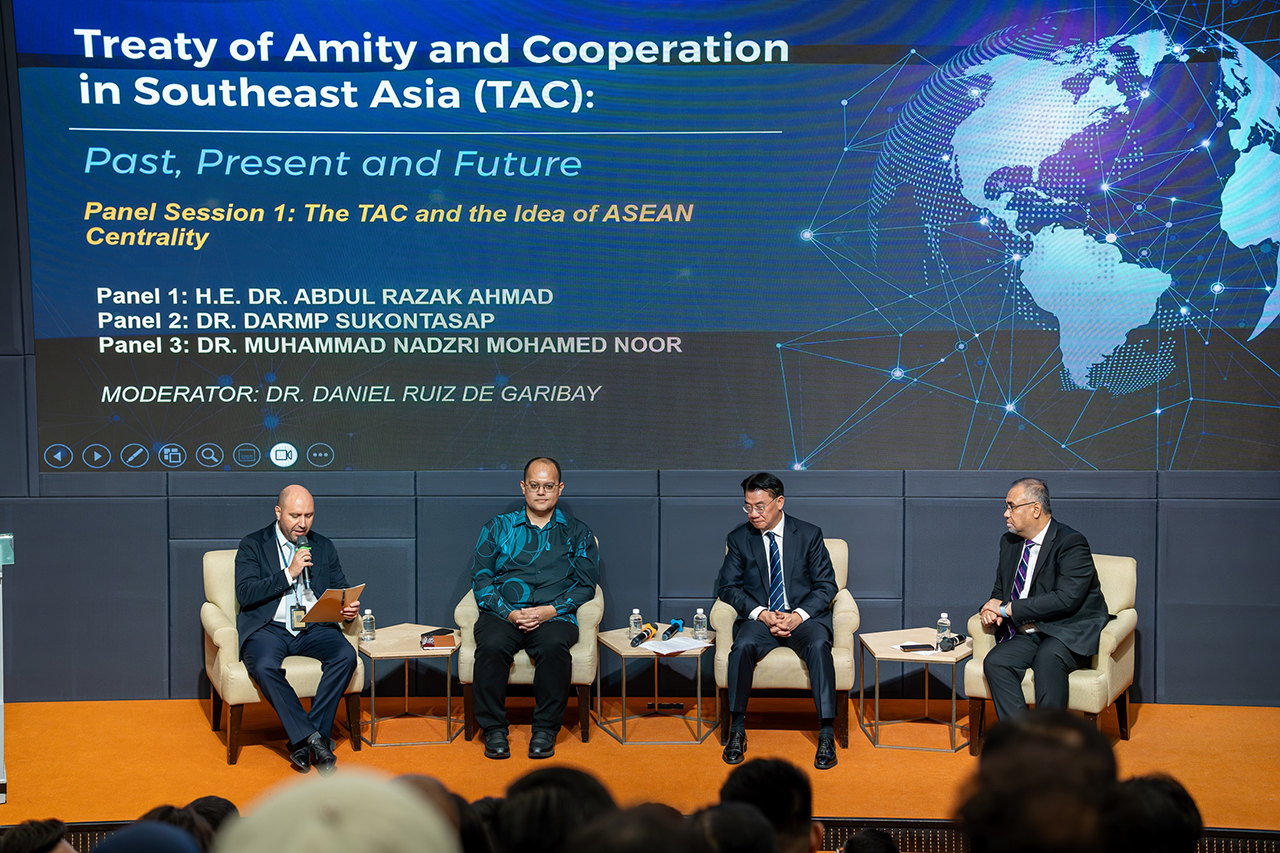
Held on 2 October 2025, this visionary initiative was the result of a strong collaboration between APU’s Bachelor of Arts (Honours) in International Relations programme, Bait Al-Amanah (BAA) — a renowned policy think tank — and the ASEAN Institute for Peace and Reconciliation (ASEAN-IPR), the official think tank of ASEAN. Together, these partners transformed the APU campus into a hub of regional diplomatic discourse, with the event officiated by H.E. Ms Danielle Heinecke, Australian High Commissioner to Malaysia.
Building Bridges Between Academia and Diplomacy
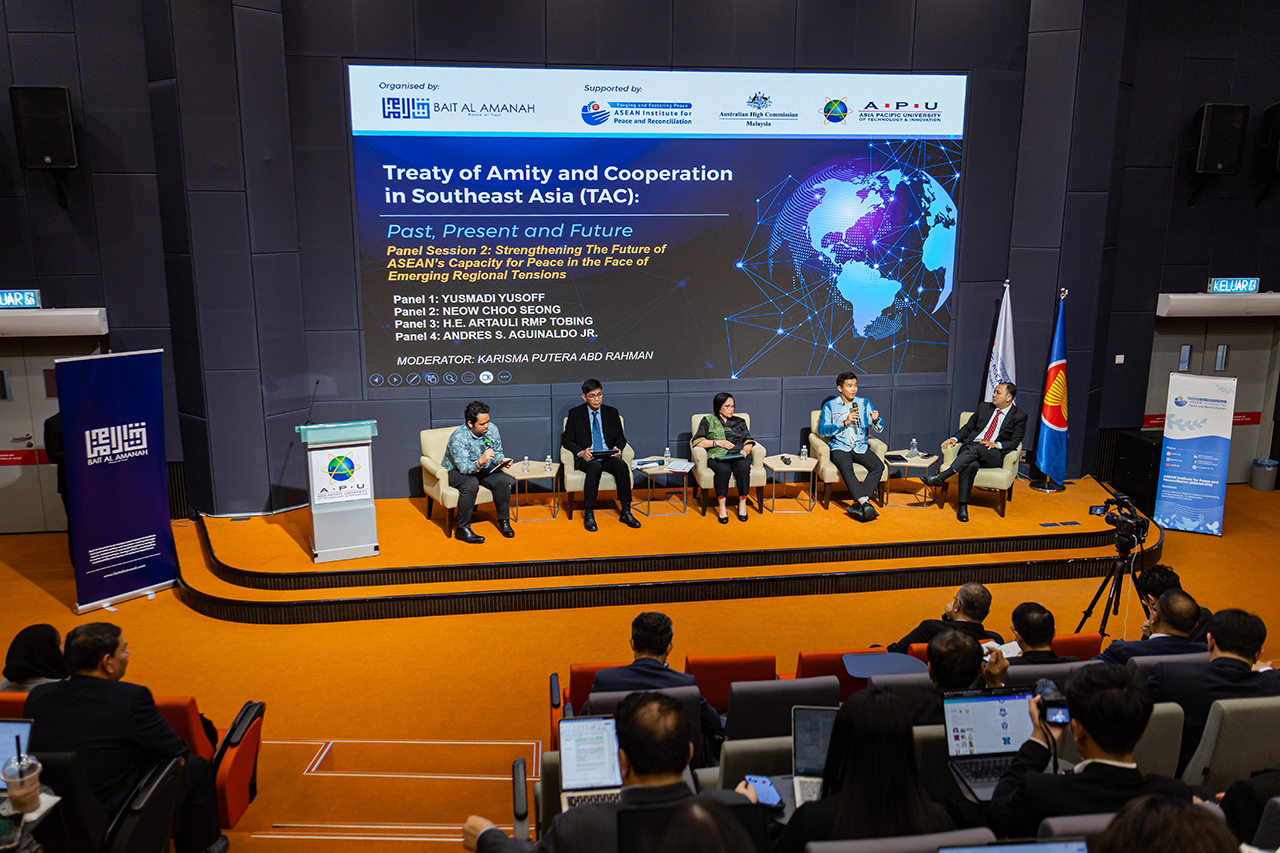
“This is an effort by the International Relations cluster to broaden our network to ensure this programme remains relevant to the ever-changing geopolitical environment,” said Mr Muhammad Syahir Md Ali, International Relations lecturer at APU and the co-organising lead of the seminar. “By having this network with a think tank specialised in government policies, it is a big advantage for our cluster and students.”
For Mr Syahir, nurturing students goes beyond the classroom. The event exemplified how APU embeds professional exposure directly into the student experience. “All of our International Relations students are automatically registered as members of the APU International Relations Society (APUIRS) because we want them to start early — to engage with experts in their field and drive their passion,” he added.
“In International Relations, networking is part and parcel of the discipline,” stated Mr Syahir, who has been working closely with BAA.
Assisting Mr Syahir in co-organising this high-level seminar were Mr Nuruddin Abdul Aziz (Programme Leader of International Relations), Ms Farah Hanim Mohmmed Ismail, Ms Nurizzah Hanim Mohmmed Ismail, Ms Nurul Hidayah Badrul Ezan, Ms Nurhani Hazirah Ahmad Hamidi, Mr Mohamed Eliyas Hashim, and Dr Daniel Ruiz De Garibay Ponce — all of whom ensured the seamless coordination of VIPs, speakers, and delegates from across 11 ASEAN countries.
Students Leading from the Front
At least 25 student committee members played active roles in bringing the seminar to life. Thirteen of them were from APUIRS, while others came from diverse APU programmes. They managed logistics, registration, technical systems, catering, and publicity — reflecting the collaborative spirit that APU strives to instil.
Their collective effort highlighted how APU empowers students to learn through doing. Beyond attending lectures, students were designing slides, managing the PA system, preparing materials, and welcoming delegates — experiences that mimic real-world diplomatic event coordination.
The Youth Voice in ASEAN Peacebuilding
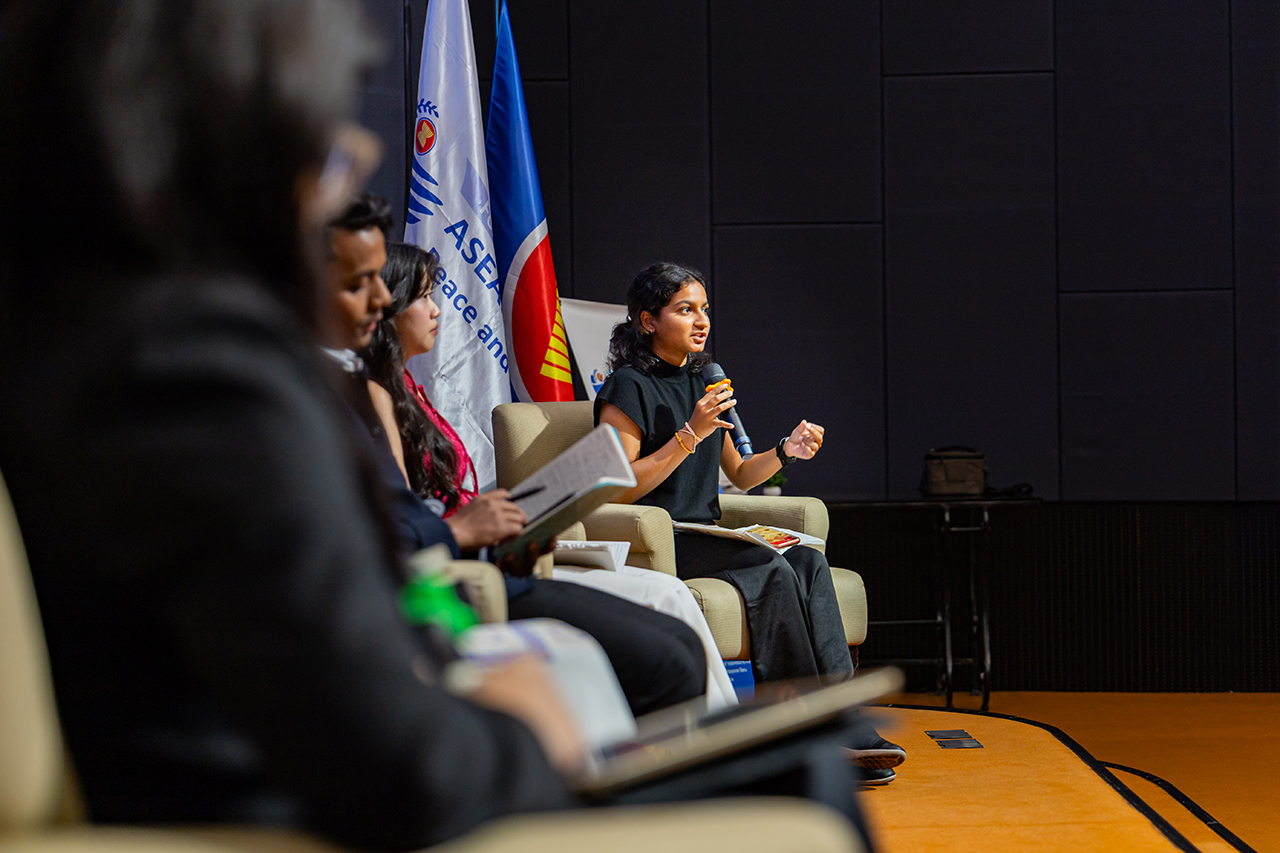
Among the many highlights was Panel Session 3: “The Role of Youth in ASEAN Peacebuilding Efforts”, where Varshini Sundra, APU International Relations undergraduate and President of APUIRS, joined as one of the panellists.
She shared the stage with Muaz Alias (President, Political Science Society, IIUM), Li Pei Kon (President, United Nations Youth, University of Nottingham Malaysia), and Elmyra Nur Jannah Izzaiddean (Research Intern, Bait Al-Amanah). The session was moderated by Nor Syazathirah Ardini Shahril Aza, another APU undergraduate.
Varshini expressed her admiration for how the event brought regional youth voices together. “We, the youth, are capable of participating in regional peace talks, and it is not something out of reach. This event really highlighted how we, the youth, have power and can make a difference,” she enthused.
For her, International Relations is not confined to textbooks — it is about engaging with the world. “If we want to change it for the better, every discussion, connection, and idea matters. Dialogue is not limited to policymakers; there is power in people, and we can also drive meaningful conversations,” she said.
Turning Ideas into Action
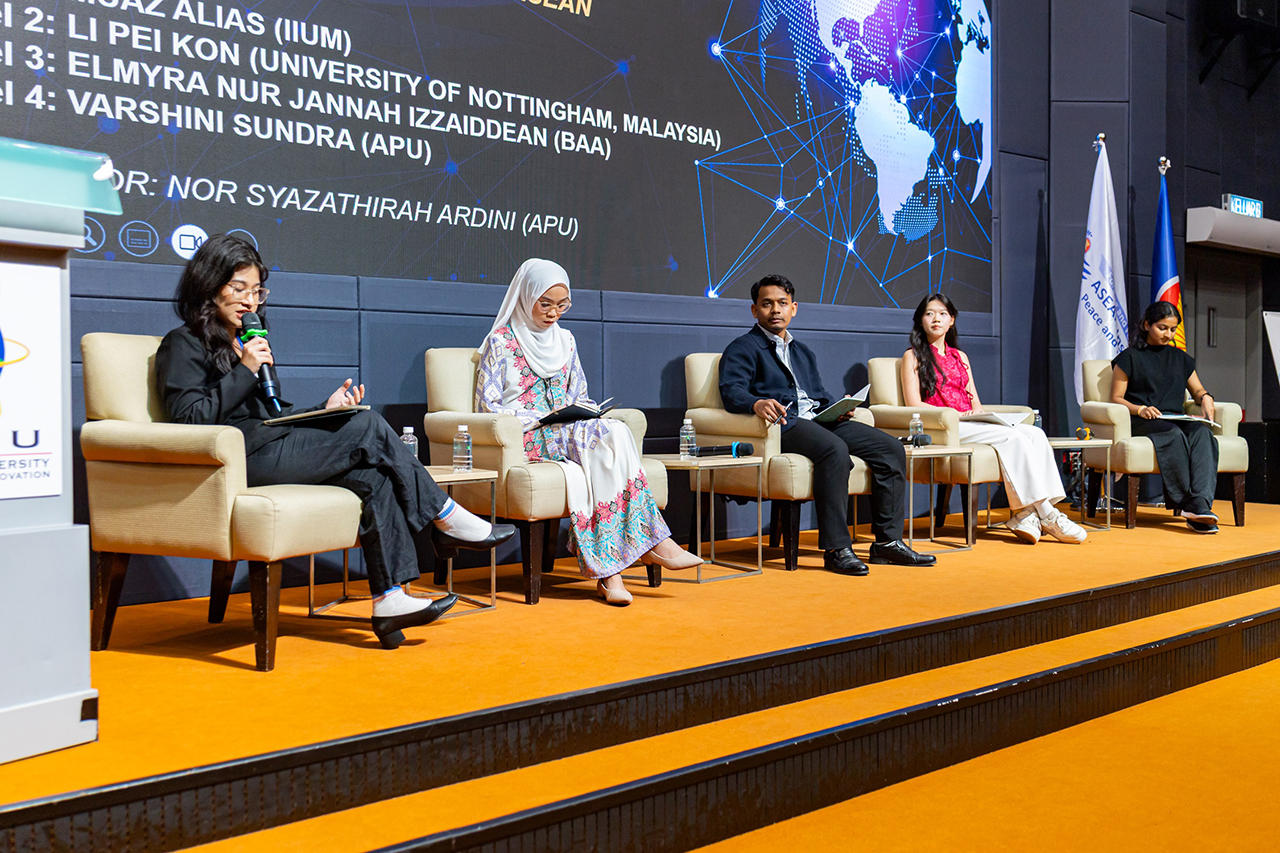
Under Varshini’s leadership, APUIRS is actively transforming this ideology into practice. The society runs a monthly themed programme featuring weekly events — from awareness campaigns and guest talks to debates and social impact projects. Their collaborations with NGOs and grassroots movements give students practical experience in peacebuilding, empowering them to co-design initiatives that merge theory with action.
“Universities are breeding grounds for ideas and inspiration,” Varshini reflected. “At APU, our diversity enables cross-border collaboration. Students shouldn’t treat university merely as a place to get a degree — it’s a space where real impact begins.”
From Classroom Learning to Real-World Diplomacy
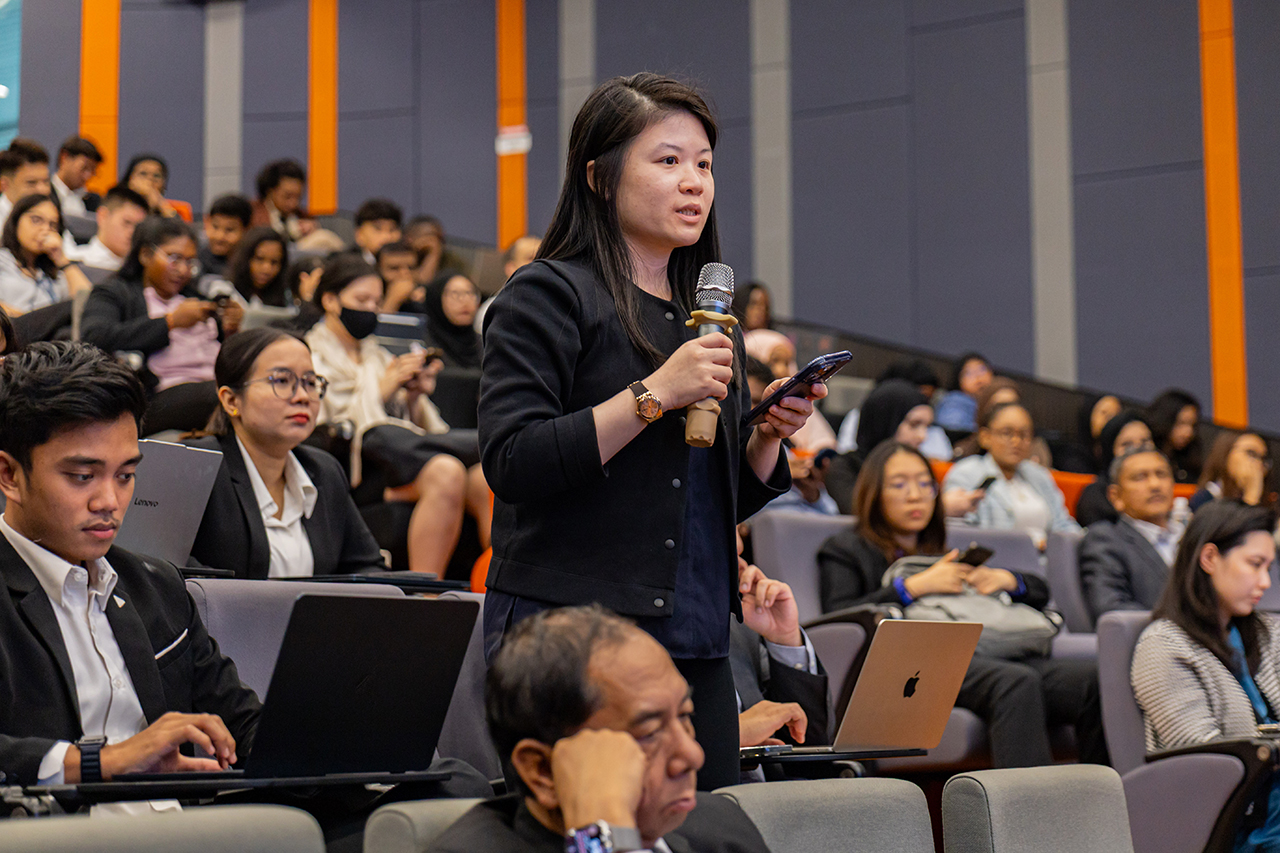
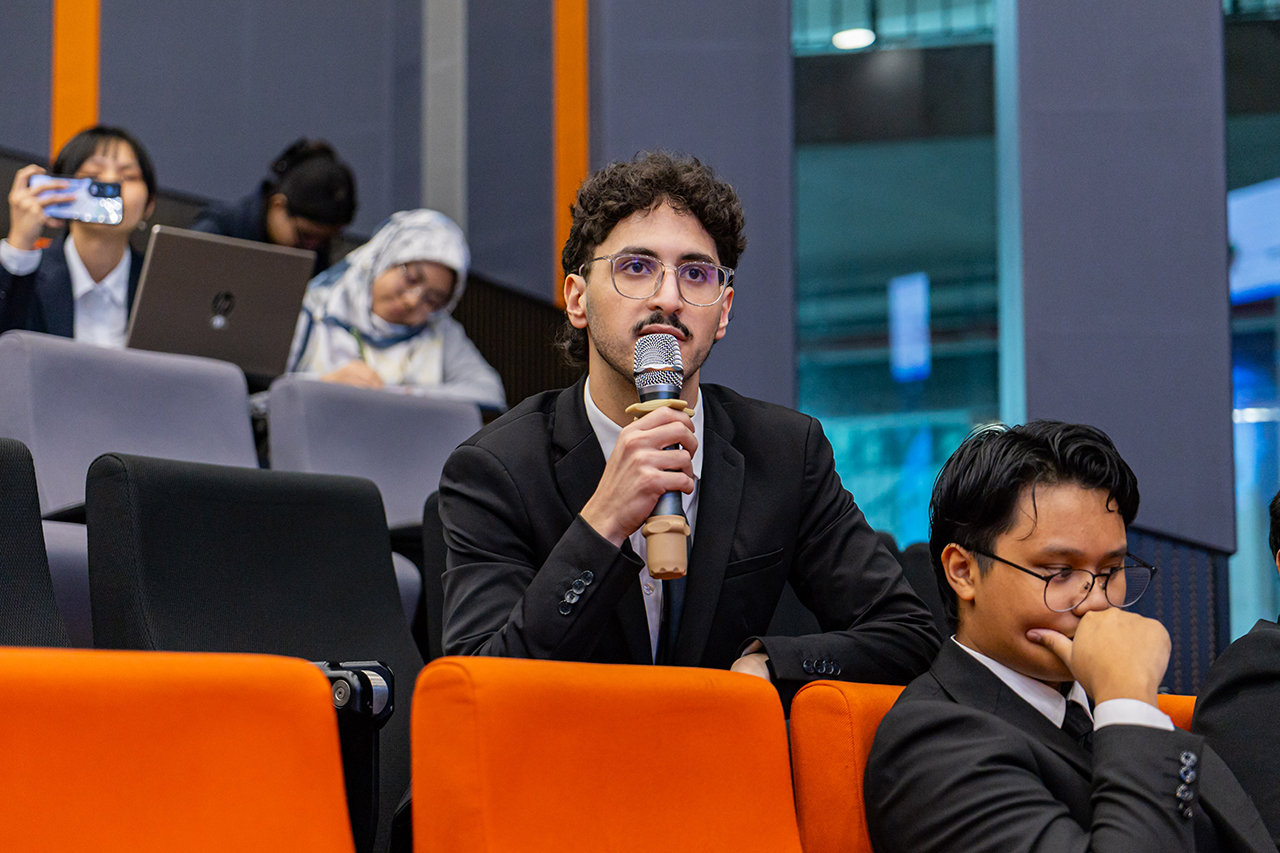
APU’s seminar also featured two other prominent panel sessions that engaged diplomats, scholars, and policymakers in constructive dialogue.
Panel Session 1, titled “The TAC and the Idea of ASEAN Centrality”, was moderated by Dr Daniel Ruiz De Garibay Ponce, APU Senior Lecturer in International Relations. Panellists included Dr Abdul Razak Ahmad, Chair of the ASEAN-IPR Advisory Board (Malaysia); Dr Darmp Sukontasap, Co-Founder and Lecturer at the Institute for Diplomacy and International Studies (IDIS), Rangsit University, Thailand; and Dr Muhamad Nadzri Mohamed Noor, Head of Geopolitics at Permodalan Nasional Berhad (PNB), Malaysia.
Panel Session 2, “Strengthening the Future of ASEAN’s Capacity for Peace in the Face of Emerging Regional Tensions”, featured Mr Yusmadi Yusoff (Former Senator, Dewan Negara), Mr Neow Choo Seong (Special Officer, International Affairs, to the Deputy Prime Minister), H.E. Artauli RMP Tobing (Indonesia’s Representative to the ASEAN-IPR Governing Council), and Mr Andres S. Aguinaldo Jr. (Executive Director IV for Plans and Programs, Philippines). The session was moderated by Mr Karisma Putera Abd Rahman, Senior Analyst, Bait Al-Amanah.
These sessions gave students the rare opportunity to hear policy debates firsthand, witness diplomacy in action, and engage with practitioners whose work directly shapes regional peace and cooperation.
Empowering Future Leaders of Peace
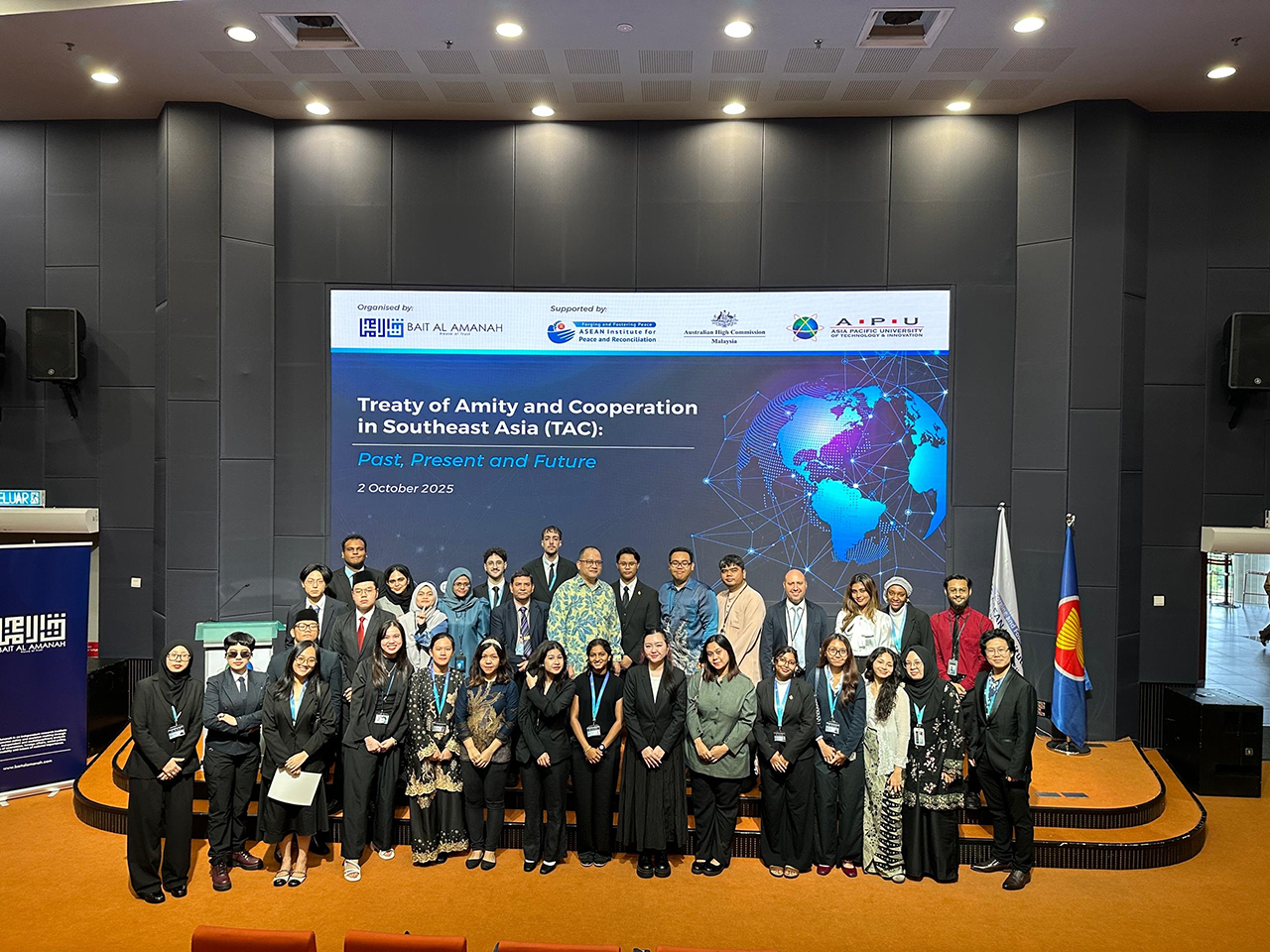
Reflecting on the event’s success, Mr Muhammad Syahir Md Ali emphasised that peacebuilding and activism should begin early. “Students have time, energy, and the idealism to think deeply about the world. Engaging with experts while they’re still on campus helps them channel their passion into purposeful action.”
His sentiment was echoed by Professor Dr Kashif Hussain, Senior Head of the School of Business, who oversees the International Relations programme.
“At APU, we believe education in International Relations must go beyond theory; it must inspire responsibility, empathy, and leadership. By connecting students directly with the architects of peace and diplomacy, we nurture thinkers who will not only interpret the world but also improve it. Our students are not waiting to become tomorrow’s peacebuilders; they are already making an impact today!”
News & Happening
Download e-Brochures
Intake Calendar
Want to know more ?
Let’s Connect